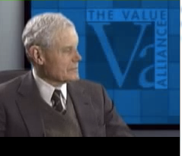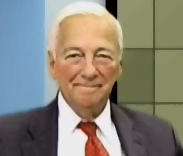| |
To receive email notification of
new digest issues, go directly to Digest Signup on the main menu above.
Published by:
Eleanor Bloxham, CEO of The Value Alliance and Corporate Governance
Alliance and John M. Nash, Founder and President Emeritus of the National
Association of Corporate Directors.
Eleanor Bloxham,
Editor-in-Chief
Our tributes below to some friends and colleagues
who have died in the past several months: Ned Regan
(October 18, 2014), John C. Whitehead (February 7, 2015), Harvey Goldschmid (February 12, 2015).
In the News:
Highlights from the stories - GE, Alibaba, HP, Whole Foods, Anthem, Dupont,
GM, McDonald’s and more.
-
GE recommends proxy access
(i.e. allowing shareholder nominees on the ballot under limited
circumstances).
-
Alibaba chair tells workers
what other CEOs or boards might think but never say in public.
-
HP upsets shareholders with
online meeting plans.
-
GCs at Whole Foods and other
companies endanger corporate reputations with watered down proxy access
proposals meant to replace shareholder ones.
-
CEO to median worker pay
ratio is still a hot topic.
-
Do boards really know how
proxy information firms work? What role does shareholder voting play?
And what changes may be coming?
-
Cybersecurity at health care
firms is in the spotlight with a major breach at Anthem.
-
Shareholder activists turn on Dupont, GM, and … other shareholder activists.
-
McDonald’s board ousts CEO –
now is on the hot seat themselves.
-
Food for thought: can your
workers afford the time and expense of good home cooked meals?
Some tributes to our friends
and colleagues:
In the News:
-
GE adopted
proxy access as a by-law change on February 6. “The company said the new
bylaws, which went into effect Feb. 6, will allow a single shareholder
or a group of up to 20 shareholders who own more than 3 percent of the
company's stock for at least three years to nominate up to 20 percent of
the board's directors,” according to
Reuters.
-
Alibaba
chair Jack Ma told workers what other CEOs or boards might think but
never say in public. According to the
Wall Street Journal, on February
13 he said: “We must objectively and calmly see our own results,
rationally regard external views and not let ourselves be lost in
illusory fame.”
-
HP’s
governance is in the spotlight again – and not in a good way.
Displeasing shareholders, HP “will become the largest company to hold an
online-only annual shareholder meeting this March,”
Reuters reported on
February 12. The online-only meeting does not allow the kind of interaction
a face-to-face meeting does. "Our preference is for a hybrid meeting."
Philip Larrieu, an investment officer at the California State Teachers'
Retirement System, or CalSTRS, told Reuters.
-
While General Counsels at Whole
Foods and other companies have endangered their company’s reputations
with watered down proxy access proposals meant to replace shareholder
ones, the SEC has stepped in to remove long-term reputational damage.
“The SEC essentially reversed a controversial December decision that
allowed Whole Foods Market Inc. to exclude a resolution for proxy access
from its upcoming shareholders meeting because it conflicted with Whole
Foods’ own proxy access proposal,”
Market Integrity Insights, a CFA
publication reported on January 20. More on this from
Reuters,
USA Today
and
Fortune.
-
The CEO to median worker pay
ratio is still a hot topic.
Credo has gathered over 70,000 signatures
urging the SEC to implement the disclosure. (Some people mistakenly
think the Dodd Frank rule requires measuring CEO to average worker pay.)
“[G]aps between pay for CEOs and workers
inhibit teamwork and lead to
lower job satisfaction and morale,
higher employee turnover,
reduced
productivity and
inferior product quality. Companies with low employee
morale are routinely outperformed by competitors with higher morale.
According to Moody’s Investors Service, excessive executive compensation
indicates a weak board and poor decision-making… some companies like
Noble Energy, the Northwestern Corporation, First Real Estate Investment
Trust of New Jersey and the Bank of South Carolina already calculate and
voluntarily disclose this ratio. India has also recently adopted a
similar regulation,” Richard Trumka wrote in an article for the
New York
Times published on February 9.
-
There are quite a few misconceptions about how proxy information (aka
advisory) firms work. As proxy season rolls around, this
Fortune article
provides a refresher on how proxy firms are used and why direct shareholder engagement matters. This
Fortune article published on February 18 discusses how shareholder activism helps
to increase public trust by providing comfort that the system is fair.
SEC commissioner Luis Aguilar supports a universal
proxy ballot and "Commissioner Dan Gallagher said he is trying to keep
an open mind about the universal ballot process" according to this
Market Watch article published February 19. Reuters reports,
"Currently, only shareholders who physically attend annual meetings are
allowed to split their ticket in contested elections and vote for a mix
of candidates nominated by company management and by large shareholders.
If they vote by proxy, they can generally only support one slate -
management's or the slate nominated by shareholders." The February 19
Reuters article also noted that because of low retail participation
rates, the SEC may revisit electronic proxy delivery.
-
Cyber security at health care firms is in the spotlight with a major
breach at Anthem. This breach involved the theft of not only address
information but also social security numbers. On February 12,
Information Week identified two ways to stop these kinds of hacks:
encryption of sensitive data and two-factor authentication to replace
passwords, which are generally easily hacked. Some security
professionals are also recommending that in addition to perimeter
controls to keep out hackers that companies implement traps inside
systems to catch hackers since many hackers can lurk inside systems for
days, months, years, the
Chicago Daily Herald reported on February 14.
-
Shareholder activists turn on Dupont,
GM, and … other shareholder activists. Nelson Peltz “softened his
stance” on splitting up Dupont but still wants board seats according to
a report by
Reuters on February 11. GM “has turned to two investment
banks to help it come up with a response to a shareholder group
demanding $8 billion in stock buybacks and a seat on the board…for
former U.S. auto task force member Harry Wilson.” Wilson “and four hedge
funds … are pushing for the company to dip into its $25 billion in
cash,” GM told
Reuters on February 12.
What is troubling in Wilson's case, according to the
Wall Street Journal, is that he will be paid by "one of the four
funds" only if "he both obtains a board seat and GM implements the
buyback proposal, or at least includes it in its proxy materials." And "Mr.
Wilson's obligation to act as a consultant to two of the funds and 'be
available to discuss with [the fund] information relating to'
GM,
even if he becomes a GM director." On February 13, the
Indianapolis
Business Journal reported that Groveland Capital, citing poor
performance along with poor governance and compensation practices, is seeking to oust the
board and Sardar Biglari, the activist who took over as CEO of Steak n
Shake. “Biglari is also facing [s]everal investor lawsuits[that]
take aim at a 2013 deal under which he licensed the ‘Biglari’ name to
the company for 20 years. Biglari won’t receive royalties if he remains
atop the company, but if it were sold, or if he were forced out for
anything but malfeasance, he’d receive 2.5 percent of sales for five
years—a sum that could surpass $100 million.”
-
The McDonald’s board ousted its CEO
and now finds itself on the hot seat,
Reuters reports. CtW Investment
Group is asking the board to refresh itself. The reasons cited in their
February 13
letter (pdf) provided by the
Chicago Tribune include, among
others, long tenure, lack of geographic diversity, board interlocks, and
complacency.
-
Food for thought – and action: can your workers afford the time and
expense of good home cooked meals? This February 11
Vox article
describes research by professor Sarah Bowen at North Carolina State
University who tells Vox that many low income workers, despite numerous
obstacles (lack of money, time, transportation to grocery stores), cook
meals at home every night. But “they felt like they didn’t have enough
money and weren’t able to cook the right way or the way they should be.”
“Having the opportunity to eat good meals shouldn’t just be a privilege.
So for me, what’s really important is looking at how we change that.”
|
|



